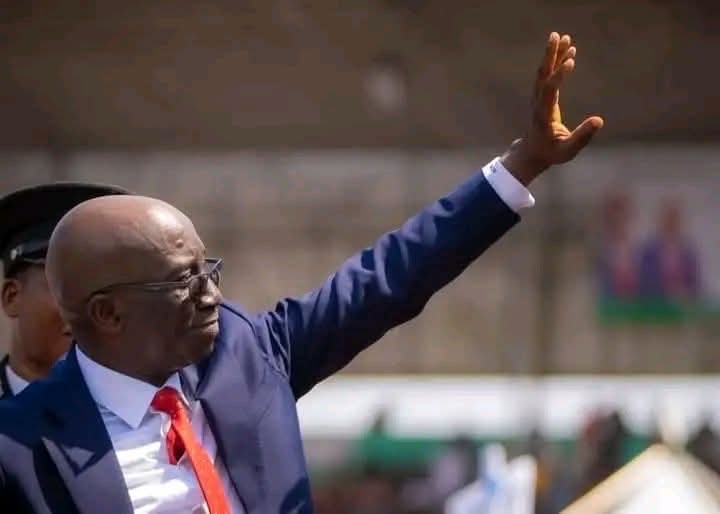Citizens have interpreted this section in different ways depending on their political inclinations. The citizens can be shared into two opposing groups.
One school of thought believes the Federal Capital Territory (FCT) has characteristics that are sharply different from the 36 states of the federation and so its citizens should be treated differently. It claims that:
i. FCT has only one senator whereas each of the 36 states has three;
ii. The National Assembly and the Senate make laws for the FCT but the state Houses of Assembly make laws for the 36 states;
iii. Whereas the president is the highest executive officer of FCT, the governors enjoy this status at the level of the 36 states;
iv. FCT is the truest representation of the heterogeneity (diversity) of Nigeria.
For these reasons, the FCT should be treated differently even in matters concerning the voting right of the citizens of Nigeria.
The second school is non-persuaded. To this school, this position is puerile. the FCT is basically the same as any state of the Federation. The common denominators are clear enough for anyone to see. Just like any state, FCT:
a. Is peopled by Nigerians;
b. Has definite geographical area and location;
c. Has executive which implements the law;
d. Has legislature which makes its laws;
e. Has judiciary which interprets its laws;
f. Is made up of diverse people just like any other state.
What is then so special about Abuja – the FCT?
From the teachings I received from my primary school teacher:
i. The expression 2/3 of 10, 20 and 60 presupposes that 10, 20 and 60 have the same quality or are like terms;
ii. The expression 2/3 of 10, 20 and 2/3 of x (indicates that x is not of the same quality or species or kind as 10 and 20); just as oranges and apples are not the same kind.
Section 134 expression is similar to that of no i. Were it not similar, it would be expressed as no ii. The implication is that FCT should be treated as any other state, when considering voting right. I believe this is the intention of the drafters of the constitution.
It is not all the time that population samples reflect the true position of the population of a country. This is the reason the population commission still goes out from house to house to do direct counting of all persons in every household in the whole country. Many characteristics that are revealed by the larger population may not be seen at all in the smaller population sample. What sample is to a country’s population is what FCT is to Nigeria. It is inappropriate to use FCT population as the limiting factor in the determination of the outcome of the presidential election.
More important is the fact that the voting right of all citizens is the same and equal. There is no one that is given higher voting status than another. Put in another way, election is organized on the principle of one man, one vote. Politically, we are all equal to one another. The same principle holds true in the eye of God and the law. To the extent I have read, I have not seen where any person has been able to show convincingly, by science or genetics, that one race or tribe or region is more intelligent than another .Consequently, we can agree that the citizens of Abuja are not, in any form whatsoever, superior to the citizens of other states.
What is the weight of the FCT? The weight of the voice of the FCT is approximately 1/37 of the weight of the voice of the entire voters in Nigeria. It is wrong to suggest that the weight of the opinion of FCT alone is heavier than the opinion of the other 36 states combined, and unthinkable for a minority to prevail over a majority. To make FCT voice the main decider of election result is to degenerate to the rule of the minority.
A second Maths approach:
2/3 of 37 states is 24.666 states or 243/5 states. 243/5 states equal 24 states plus 3/5 states. Assuming there is no fraction of a state, the 3/5 state can be approximated to one full state. However, a second view regards 3/5 of a state as 3/5 of those who actually cast their votes. In this sense, two ways of interpreting section 134 are possible:
i. 2/3 of 37 states equals/speaks to the entire votes cast in approximately 25 states, or
ii. 2/3 of 37 states equals/ speaks to the entire votes cast in 24 states plus 3/5 of the votes cast in the 25th state.
A candidate may be declared a winner of the presidential election when he polls or scores:
i. The highest number of votes cast and
ii. 25% of the votes cast in each of 25 states (to ensure widespread acceptability), or when he scores:
i. The highest number of votes cast,
ii. 25% of votes cast in each of 24 states, and
iii. 25% of 3/5 of the votes cast in the 25th state (again FCT is regarded as a state)
When you take FCT as a state (and that is what section 134 says), all the gray areas surrounding this section dissolve and open the way for the fullest and truest expression of the Nigerian will at election.
The Supreme Court should not yield to the first school of thought. Nigeria is not an apartheid system; it is a democracy where the people’s will must prevail.
Chris Ade-Edogun is the Principal of First Gloryworld Schools, Benin City, the Edo State capital.


